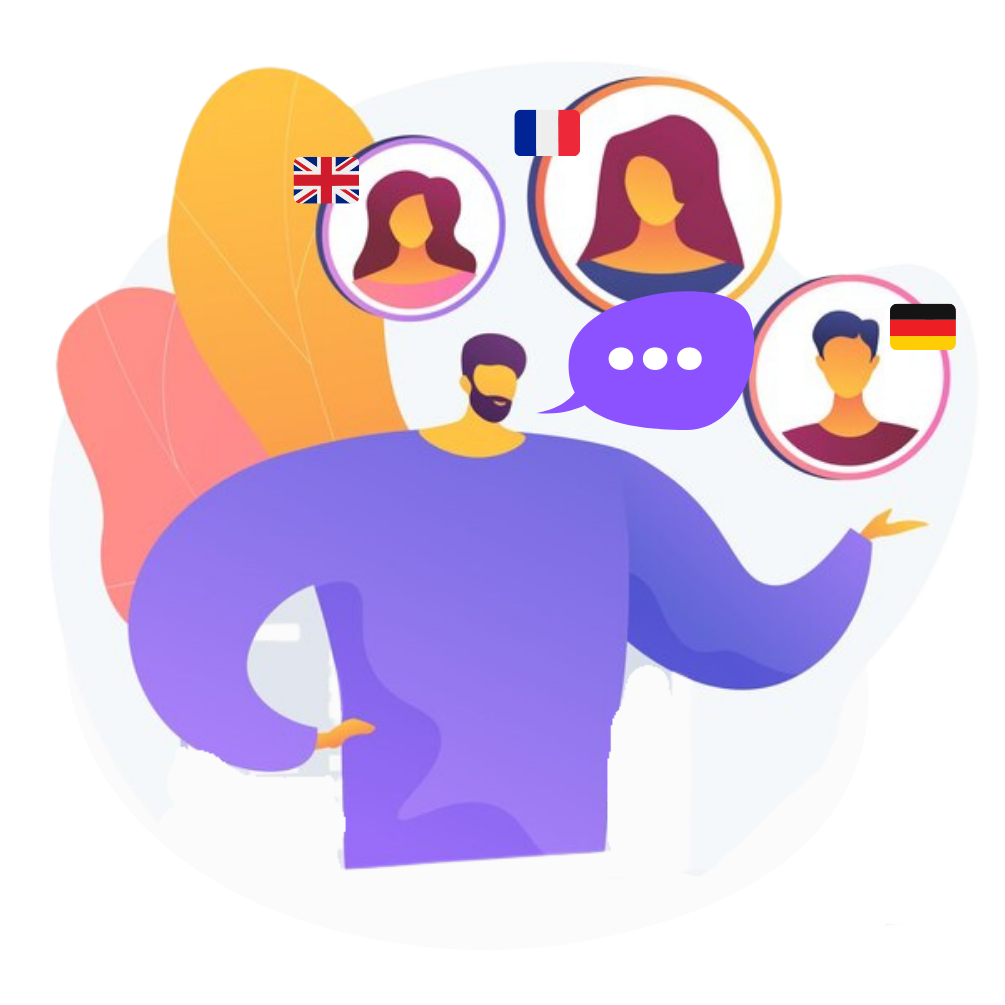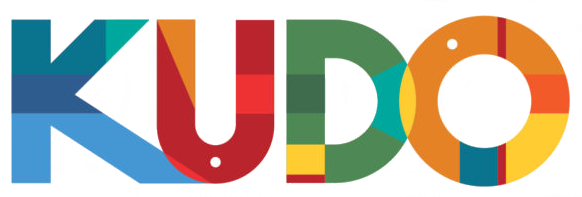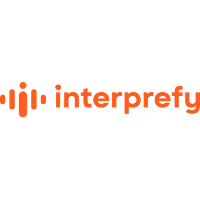
Are you organizing a meeting with people who speak several languages and need interpreters to facilitate communication? Do you host webinars with attendees from multiple countries? Are you interested in adding accessibility to your events and communication? ITC Global, your interpretation agency, offers a full suite of language interpretation services for any event or scenario.
We offer a full suite of language interpretation services for all your interpreting requirements. Not sure which service is right for you? Check out the frequently asked questions below and then contact our interpretation experts if you want tailored support.





Add-on services for both scheduled events and on demand

Translation focuses on written information and interpretation deals with spoken and visual communication.
Simultaneous, consecutive, whisper and liaison interpreting are the main types of interpretation that clients need Depending on your industry OPI and VRI might be a benefit as well. Check out our other questions below for details.
Simultaneous interpretation is when an interpreter translates what a speaker is saying while they’re talking.
Simultaneous interpretation is often used at large in-person conferences or meetings, as well as in virtual webinars and meetings. We recommend this type of interpretation when you need to interpret a presentation into multiple languages.
The interpreter listens and speaks simultaneously, seamlessly conveying the words of the speaker, which takes intense concentration. Simultaneous interpreters work as a team of two and take relay breaks every 20 to 30 minutes on average.
For in-person events, interpreters typically sit in soundproof booths with a direct view of the presenter who should be using microphones. They listen to the speaker through headsets and provide real-time interpretation into the target language, with only a few seconds of delay. Participants wear headsets tuned to their preferred language.
Portable equipment provides another listening option for simultaneous interpretation. It includes a suitcase with a micro-transmitter and receivers for people who need interpretation. This system is similar to those used for museum audio guides and is especially useful for guided tours.
For virtual simultaneous interpretation, it’s essential for speakers to use microphones to ensure clear communication and prevent any risk of hearing damage for interpreters.
In this format, the speaker delivers their message for several minutes (a few paragraphs), then pauses. The interpreter takes notes and orally transmits the speaker’s message in another language during the pause. Note taking is essential for consecutive interpreting, as the interpreter must record the speaker’s ideas and then translate them into the other language.
Consecutive interpretation is most appropriate for small group events like training sessions, meetings and negotiations. It can also be used for larger events when it is difficult to distribute headsets to everyone. Consecutive interpreting will lengthen an event, something important to consider when you’re choosing the type of interpretation you want.
Whisper interpretation occurs simultaneously when the interpreter whispers a summary of what the speaker is saying into the ear of one or two people maximum. Chuchotage doesn’t require any equipment, so it’s simple to set up. However, it is rarely used because it generates sound disturbance that can be bothersome to other participants and because it can only provide an overview of what’s being said.
This type of interpretation provides a language bridge between people speaking different languages, often in informal meetings. If you are hosting a delegation of visitors from another country, you can work with a liaison interpreter to meet clients at the airport and take them on tours and excursions. These interpreters generally interpret informal conversations.
Over-the-phone interpretation (OPI) connects participants via a phone call, allowing them to communicate in different languages with the assistance of an interpreter. This type of interpretation service is in consecutive mode. The OPI interpreter is remote (on the phone) while other participants can be in the same room or remote. For example, a landlord could use OPI when a tenant comes into the office to ask questions about their lease.
OPI is commonly used to reduce costs and facilitate communication in various contexts, including business negotiations with international clients or suppliers, as well as in medical settings where immediate language assistance is needed.
Interpreters classified as “Community Interpreters” are language professionals who specialize in facilitating communication in everyday settings where language barriers may arise. They work in various informal environments such as healthcare facilities, schools, social services agencies, community centers, and legal aid organizations.
These interpreters enable ITC to support clients with less complex interpreting needs while staying within a more reasonable budget.
Community interpreters have linguistic proficiency, cultural competence, empathy, and a deep understanding of the communities they serve. They bridge linguistic gaps and convey messages accurately and sensitively. Additionally, their understanding of local dialects, colloquialisms, and cultural nuances ensures effective communication between diverse communities.
Their primary focus is to promote access to essential services for linguistically diverse populations, advocating for linguistic equity and facilitating access to vital services, which helps improve outcomes in areas such as healthcare, education, and social welfare.






We recommend Zoom as the optimal platform for interpretation services due to its versatile features, including the ability to host multiple language channels and engage multiple interpreters simultaneously. While we can accommodate events on other platforms such as Microsoft Teams or KUDO, we strongly advise using Zoom because it has robust interpretation capabilities, particularly for larger meetings or webinars with diverse language needs.
Each platform for Video Remote Interpretation offers its own set of advantages and limitations.
Zoom, for instance, provides the versatility of hosting multiple language channels and accommodating multiple interpreters simultaneously. Its user-friendly interface and widespread adoption make it a popular choice for various events. One of this platform’s key advantages is that all channels can be recorded.
Microsoft Teams offers seamless integration with other Microsoft Office tools and is preferred by organizations already using the Microsoft ecosystem. However, only the main channel can be recorded and interpretation is not available for breakout rooms. In addition, language channels are unidirectional, so you would need separate interpreters for French to English and English to French, for example.
Among the available options, we highly recommend Zoom because it has comprehensive interpretation features, it’s easy to use, and it’s reliable. With Zoom, ITC can help you seamlessly manage interpretation channels, engage multiple interpreters, and provide a smooth communication experience for all participants.
Zoom Meetings and Webinars serve distinct purposes, each tailored to different event formats and audience interactions. Meetings are ideal for interactive sessions with active audience participation or breakout discussions, while Webinars resemble virtual lecture halls suited for larger audiences with limited interaction. Depending on your event type, ITC will recommend the most suitable format and provide guidance on utilizing Zoom’s features effectively. Additionally, we offer different licensing options to accommodate varying audience sizes for a smooth interpretation experience regardless of the event scale.
Interpretation on Zoom with ITC is a seamless process designed to ensure effective communication in multilingual settings. If you already have a paid Zoom account with interpretation enabled, we can seamlessly integrate our interpreters into your event. Alternatively, we can provide our own Zoom account for interpretation purposes. Our dedicated team manages all aspects of the interpretation process, from scheduling and setting up interpretation channels to providing technical support and conducting test sessions. During the event, our interpreters work in shifts to ensure continuous interpretation, allowing participants to select their preferred language channel for seamless communication.
Additionally, on the day of the event, a 15-minute practice session with ITC’s technical team and interpreters is included. This final session occurs 15 minutes before your webinar begins. We conduct a final check to ensure everything is ready before starting the event, confirming that all panelists are logged in and that their audio and video are working correctly.
ITC provides comprehensive technical support and additional services to ensure a smooth and successful remote interpretation experience on Zoom.
We provide technical support for two periods: 15 minutes prior and during the final 15 minutes of the event. An ITC contact is also available in case of issues outside of these two periods. This service is included in the quote.
Additionally, ITC offers the option for continuous technical support throughout the entire event for an additional cost. (This ITC tech support is mandatory for hybrid events.)
For complex webinars with multiple speakers, ITC recommends scheduling a Pre-Event Test Session (dry run) two or three days before the event. This session involves panelists and our team but excludes attendees. During this session, we ensure that all technical aspects, including the presentation deck, links, and interpretation channels, are functioning correctly. Please note that if you require interpreters for this session, there will be an additional cost.
Upon request, ITC will provide a recording of the event in all languages, as well as a list of all participants, along with their questions and responses.
ITC can accommodate hybrid webinars, where speakers and attendees participate both in person and remotely via Zoom. People who want to listen to the event in other languages can connect to the remote Zoom broadcast link and access different interpreter language channels.
For such events, the organizer at the physical location must make sure that the audio and presentation materials are properly set up on Zoom, allowing everyone, including interpreters, to hear and see the event correctly. During Q&A sessions, questions must be asked via the audio setup connected to Zoom for interpretation to occur; otherwise, they cannot be interpreted.
For additional requirements specific to this type of event, please contact our specialists.
Speak the language of your customers, prospects, partners, and employees around the world with ITC Global’s full suite of solutions powered by our unique blend of talent and technology. Every language solution you need, from translation to AI technology.
Tailored to you. All in one place.
Our resource center has lots of related information to explore. Here are some articles to get you started.
